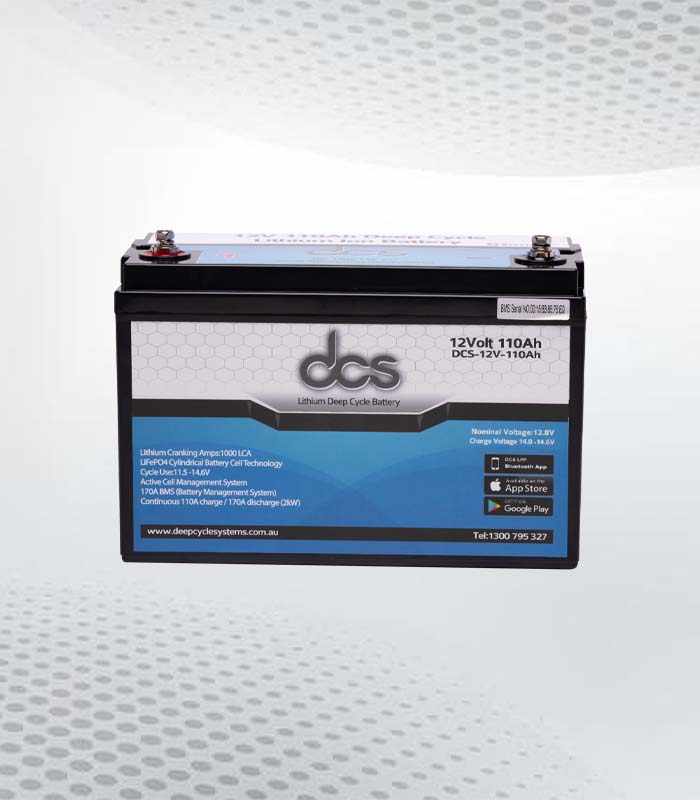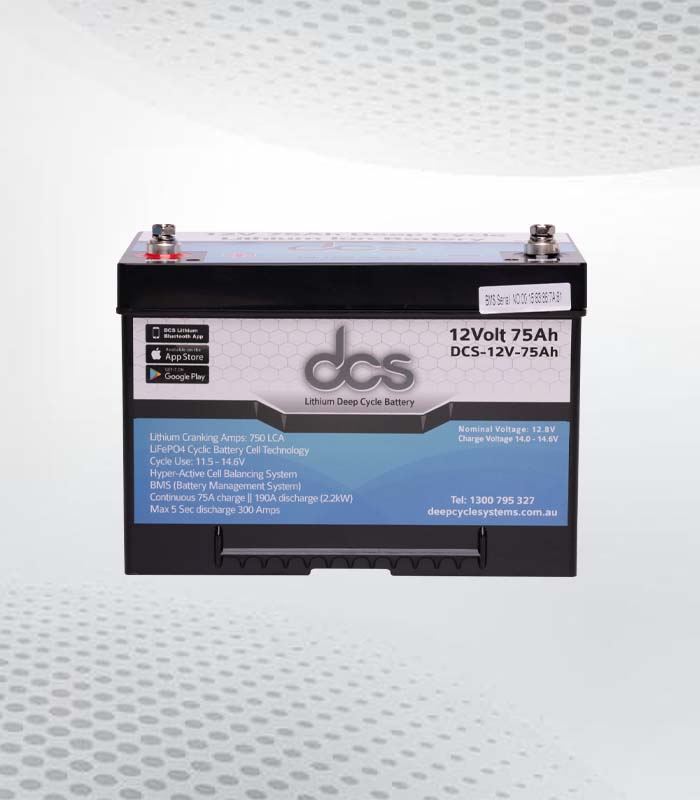In today’s digital world, reliable and efficient power sources are critical. Whether it’s powering your car, your RV, or your home’s solar power system, batteries play an integral part. One such power source that has gained significant attention is the 12-volt lithium battery. But what exactly is a 12 volt lithium battery, and what makes it so unique? In this blog post, we will uncover the secrets of the 12V lithium battery, exploring its benefits, uses, workings, and safety aspects.
Understanding The Basics: What Is A 12-Volt Lithium Battery?
A 12-volt lithium battery, as implied by its name, is a battery where lithium serves as a key element in its cellular composition. The battery operates on a 12-volt system, a standard level of voltage in numerous domestic and automotive devices. Falling under the broader category of lithium-ion batteries, these 12-volt variants are recognized for their remarkable energy density, superior discharge rates, and exceptional lifespan.
The usage of lithium in these batteries contributes to their efficient performance and longevity, setting them apart from other types of batteries. It’s important to note that while the battery uses a 12-volt system, its performance and functionality are directly influenced by the inherent characteristics of lithium. Thus, understanding the role and significance of lithium in these batteries is key to comprehending their overall operation and efficacy.
The Benefits: Why Choose A 12-Volt Lithium Battery?
Choosing a 12-volt lithium battery brings numerous benefits that cannot be understated. Their most noticeable traits include being lightweight and compact. These properties make them extremely easy to install and manipulate. Also, the efficacy of lithium batteries is significantly high. They are capable of providing greater energy output in contrast to their lead-acid counterparts.
Impressively, their depth of discharge stands out, indicating that these batteries can still function well even after substantial drainage without impacting their lifespan. Another key aspect that sets lithium batteries apart from other variants is their remarkably low self-discharge rate.
This implies that they can maintain their charge over a considerably long period of inactivity, reducing the necessity for regular recharges. The maintenance needs for these 12-volt lithium batteries are quite minimal. This implies less time and effort for the user, thereby increasing efficiency. With all these factors taken into consideration, it’s clear that 12-volt lithium batteries are an ideal solution for those looking for a dependable, long-lasting, and proficient energy source.
 Practical Usage: Where Can 12-Volt Lithium Batteries Be Used?
Practical Usage: Where Can 12-Volt Lithium Batteries Be Used?
12-volt lithium batteries have a wide range of applications due to their unique properties. They are commonly found in renewable energy systems, like solar power setups, where they store and supply power efficiently. This is especially beneficial in off-grid situations where reliable, long-lasting energy storage is needed.
They are also a popular choice in recreational vehicles (RVs) and marine applications due to their superior performance, longevity, and resistance to harsh environments. Another common use for 12-volt lithium batteries is in electric vehicles (EVs). The high energy density and quick charging capabilities of these batteries make them perfect for powering EVs.
They not only increase the driving range but also reduce the vehicle’s weight, enhancing its efficiency. Portable power tools and devices are other common users of these batteries. Power tools require batteries that can deliver high currents, and the 12-volt lithium battery fits the bill perfectly. Similarly, devices like portable speakers, camping gear, and emergency lighting systems also rely on these batteries due to their lightweight nature and long shelf-life.
The Science behind the Power: How a 12-Volt Lithium Battery Works
Exploring the complex nature of a 12-volt lithium battery, one discovers that the entire operation hinges on the strategic transit of lithium ions. When the battery is discharging power, these tiny ions move away from the negative electrode, commonly known as the anode, and towards the positive electrode or cathode.
This shift in location isn’t permanent, though. As soon as you begin charging your battery, these ions start making their way back to the anode. The facilitator of this to-and-fro journey is a substance known as an electrolyte. By migrating between the electrodes, the lithium ions generate an electric current.
This electrical energy is efficiently converted to power a plethora of devices and systems, from smartphones to electric vehicles. The non-stop relocation of these lithium ions is the reason why lithium batteries are such a potent and dependable source of power. While it might seem complicated initially, the principle is simple: the secret lies in the intentional motion of lithium ions.
Understanding the Safety Aspects of 12v Lithium Batteries
As with any battery technology, safety is paramount when using 12-volt lithium batteries. A key safety feature inherent to these batteries is the use of built-in Battery Management Systems (BMS). The BMS closely monitors and regulates the battery’s charge and discharge rates, helping to prevent situations like overcharging or deep discharging that could potentially harm the battery or even pose a safety risk.
12-volt lithium batteries also have an excellent safety record when it comes to handling high temperatures. They are designed to withstand and operate efficiently even in relatively high-temperature conditions, minimizing the risk of overheating and potential subsequent hazards. However, it’s important to note that extreme temperatures, either hot or cold, can still affect the battery’s performance and should ideally be avoided. Another safety advantage of 12v lithium batteries is their environmental safety.
Lithium is a non-toxic element, making these batteries a safer choice when it comes to disposal and recycling. Unlike lead-acid batteries that contain harmful heavy metals, the use of lithium batteries is a more environmentally conscious decision. While 12-volt lithium batteries have several safety features, users should also practice safe handling to ensure their longevity and minimize any potential risks. It’s crucial to follow manufacturer instructions, especially regarding charging, discharging, and storage.
Maximizing the Efficiency of Your 12V Lithium Battery
To extend the longevity and efficiency of your 12V lithium battery, it is crucial to maintain a suitable charging and discharging cycle. This does not imply draining the battery to its absolute capacity. It’s best to aim to keep discharge levels at about 80%. By not allowing the battery to be completely depleted before recharging, you can maintain its efficiency and longevity. When the battery discharges to around 80%, recharge it without delay.
By doing this, the overall life and output of the battery can be preserved. Furthermore, it is important to remember that environmental factors like extreme temperatures can negatively impact your battery’s performance. Therefore, always aim to store and use the battery in an environment with moderate temperatures. Extreme heat or cold can cause the battery to work harder, leading to a shorter lifespan.
While 12-volt lithium batteries are durable and designed to endure a high number of charge and discharge cycles, remember that no battery lasts forever. All batteries, regardless of type or usage pattern, have a definite lifespan. Hence, excessive use of the battery beyond its capacity could accelerate wear and tear, resulting in a premature decline in performance.
Maintaining Your 12V Lithium Battery for Longevity
Ensuring the maximum lifespan of your 12V lithium battery involves several key steps that revolve around proper maintenance and handling. One important maintenance practice is ensuring the cleanliness of the battery’s terminals. This involves removing any accumulation of dust, dirt, or any other material that could interfere with the battery’s efficient functioning and performance.
Furthermore, closely monitoring the battery’s state of charge is critical. This allows you to ensure the battery operates at its ideal discharge level and prompts a timely recharge, thus optimizing its lifespan. Proper storage practices are also essential; storing the battery in a moderate, stable environment is advisable to prevent the negative impacts of extreme temperature changes.
The usage of a battery charger specifically tailored for lithium batteries plays a crucial role in this maintenance regimen. A lithium-specific charger facilitates a more efficient and safer charging process, significantly reducing the risks of overcharging, which could cause potential damage or safety concerns.
Charging and Discharging a 12-Volt Lithium Battery
Charging and discharging a 12-volt lithium battery involves a crucial interplay of processes to ensure optimal performance and longevity. During the charging phase, an external power source supplies electricity to the battery, causing lithium ions to migrate from the positive electrode (cathode) to the negative electrode (anode). This process, known as lithium-ion migration, stores electrical energy within the battery.
Conversely, during discharging, the stored energy is released as the lithium ions move back from the anode to the cathode, generating an electric current that powers the connected device or system. The efficiency and speed of these processes are key advantages of 12-volt lithium batteries, allowing for rapid charging and discharging cycles.
It’s essential to note that maintaining a balance between charge and discharge rates, as well as avoiding extremes such as deep discharges or overcharging, contributes significantly to prolonging the battery’s lifespan. Manufacturers often integrate protective mechanisms to prevent issues like overcharging, ensuring the safe and reliable operation of 12-volt lithium batteries throughout their service life.
FAQ’s
What is a 12-volt lithium battery, and how does it differ from other battery types?
A 12-volt lithium battery is a rechargeable energy storage device operating at a nominal voltage of 12 volts. Distinguished by lithium-ion technology, it surpasses traditional batteries with higher energy density, extended lifespan, and reduced weight. Its consistent voltage output makes it a dependable power source across diverse applications.
What are the advantages of using a 12-volt lithium battery?
The 12-volt lithium battery offers a superior energy-to-weight ratio, faster charging, and an extended cycle life compared to conventional batteries. Its compact design suits space-constrained applications, and the stable voltage output enhances the efficiency of electronic devices and systems.
How long does a 12 volt lithium battery last, and what factors affect its lifespan?
Averaging between 5 to 15 years, the lifespan of a 12 volt lithium battery hinges on factors such as charge rates, discharge rates, temperature, and usage. Proper maintenance practices, including avoiding deep discharges and extreme temperatures, can significantly prolong the battery’s operational life.
Can a 12-volt lithium battery be used as a replacement for lead-acid batteries in automotive applications?
Yes, 12-volt lithium batteries increasingly replace lead-acid counterparts in automotive use, offering benefits like reduced weight, faster cranking power, and an extended service life. Compatibility with lithium-ion technology is crucial for optimal performance in the vehicle’s charging system.
How environmentally friendly are 12-volt lithium batteries compared to other battery types?
Considered eco-friendly, 12-volt lithium batteries are recyclable, with a manufacturing process that has a lower environmental impact. Their extended lifespan reduces the need for frequent battery replacements, contributing to sustainability efforts.
Conclusion
To sum it up, the adoption of 12-volt lithium batteries presents a remarkable solution for an array of energy needs. Their operational efficiency, durability, and versatility can be harnessed to fulfil a broad spectrum of power requirements, from powering electric vehicles to supporting home energy storage systems. A proper understanding of these batteries, their unique benefits, and effective maintenance strategies can empower you to utilize their full potential and ensure their longevity. With 12-volt lithium batteries, you’re not just choosing a power source, you’re choosing a more sustainable and efficient energy future.
| Other Good Articles to Read |
| Blogs Rain |
| Cme Blog Spot |
| Garcias Blogs |
| Yyc Blogs |
| Guiade Blogs |
| Blogs-Hunt |
| Impact-Blog |
| Smarty Blogs |
| Ed Blog |
| Mo Blogs |
| Blogs Em |
| Blogs T |
| Related Business Listings |
| Contact Directory |
| Local Business Profiles |



